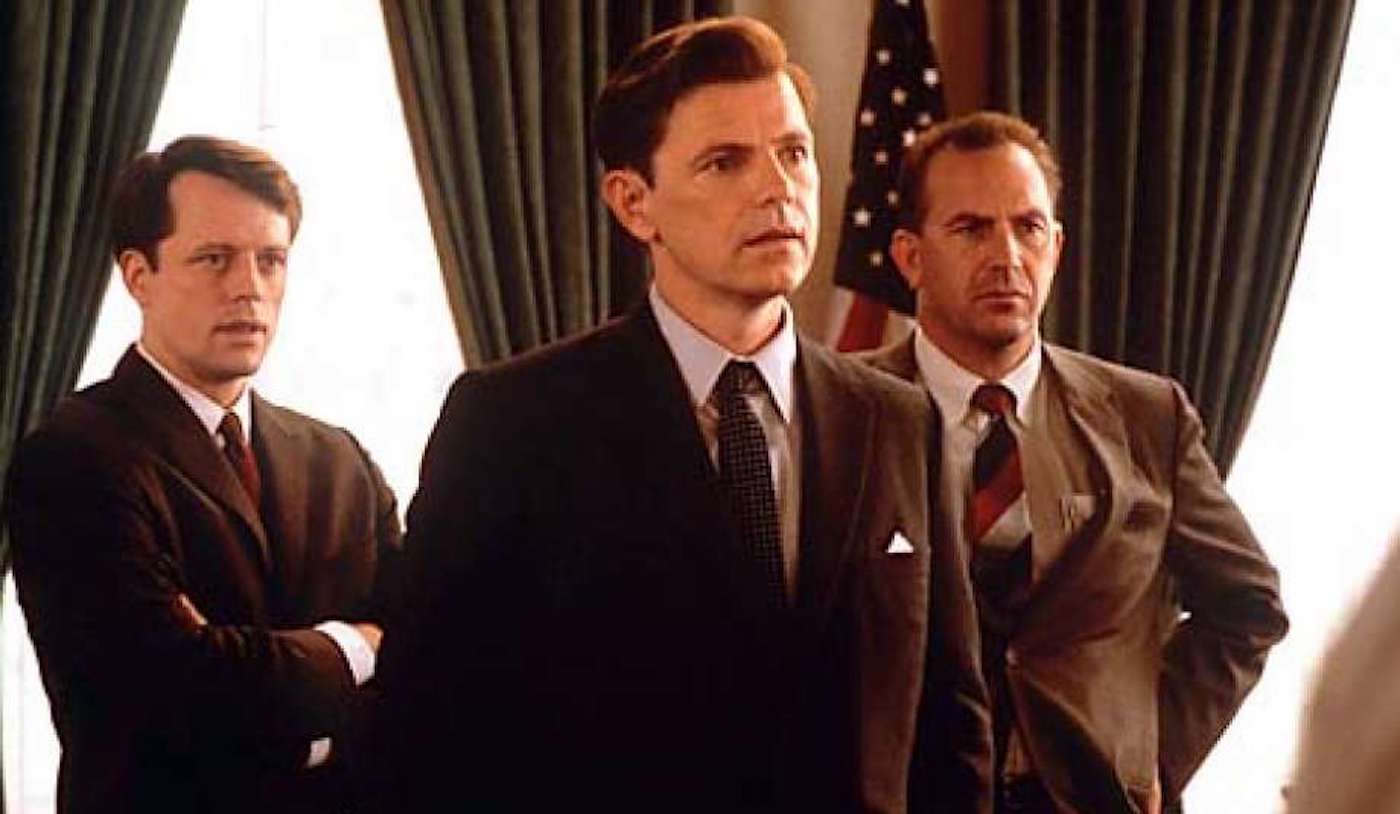
Thirteen Days may have been critically acclaimed but the film takes some major dramatic licenses in revisiting the Cuban Missile Crisis.
If we want to get technical with the anniversary, the wide release didn’t come until January 12, 2001. But for the sake of Oscar qualification, New Line released the film on December 25, 2000. There weren’t many critics groups giving the film many awards. The Critics Choice Awards were among the few to honor Thirteen Days with a Best Picture nomination. Would the film have gotten in with an expanded Oscar field? Maybe, maybe not. It certainly does not help that the film is a box office bomb.
The film revisits the Cuban Missile Crisis of 1962. While filmmakers are able to factor in recently declassified information, they still manage to botch the story. By which, I mean they botch the key players that should be up front and center in John Kennedy’s (Bruce Greenwood) administration. To no surprise, Attorney General Robert F. Kennedy (Steven Culp) is a key supporting player). You also cannot tell this film without Defense Secretary Robert McNamara (Dylan Baker) playing a prominent role.
Robert McNamara had some thoughts of his own about the film. McNamara’s thoughts should also influence how we look at the film twenty years later. After all, this is a man who lived through the crisis. Prior to seeing the film, McNamara told PBS NewsHour that he told producer Peter Almond that “Kenny O’Donnell didn’t have any role whatsoever in the missile crisis; he was a political appointment secretary to the President; that’s absurd.” Initially, the former Defense Secretary refused to see the film. Of course, he would later change his mind and see the film.
McNamara’s response to Almond after seeing Thirteen Days:
“Well, if I’d made it, it would be historically accurate and nobody would come to see it. Now, you’ve taken some liberties with history. I think you’ve dramatized it. I think it’s an absolutely fascinating portrayal and a very constructive and responsible portrayal of a very, very serious crisis not only in the history of this nation but in the history of the world.”
In his interview, McNamara also points out how close the world truly came to nuclear war. Sorensen should be in the leading role. Aside from this, the film really captures the threat and drives it home. McNamara was not alone with his criticism of the film. Others have pointed out that Kenneth O’Donnell had no role in the crisis whatsoever. When you have former members of the Kennedy administration pointing things out, we need to take them seriously. O’Donnell is not the most important figure of the Cuban Missile Crisis. If this is a takeaway from the film, I suggest reading history books.
I love Kevin Costner’s work as an actor and Field of Dreams remains an all-time classic. But in spite of this, he is not the right man for the film. At least, not in terms of giving O’Donnell a prominent role in the film. While O’Donnell could play some role in the film, White House Counsel Ted Sorensen really should have been a leading role in the film. I did lower my initial rating because of the creative liberties. However, I am not because of the McNamara’s comments about capturing the crisis. The film also is not a documentary but Hollywood also has a responsibility when it comes to storytelling.
Portraying Jack and Bobby Kennedy are Bruce Greenwood and Steven Culp. I think Greenwood’s accent could be better but the two otherwise capture their personas. Coincidentally, Greenwood portrays McNamara in Steven Spielberg’s The Post.
Kennedy fans might appreciate Thirteen Days for what it is but the film could do better in putting the right faces up front.
DIRECTOR: Roger Donaldson
SCREENWRITER: David Self
CAST: Kevin Costner, Bruce Greenwood, Steven Culp, Dylan Baker, Michael Fairman, Henry Strozier, Frank Wood, Kevin Conway, Tim Kelleher, Len Cariou, Bill Smitrovich, Dakin Matthews, Madison Mason, Christopher Lawford, Ed Lauter, Elya Baskin, Boris Krutonog, Peter White, James Karen, Tim Jerome, Olek Krupa, Lucinda Jenney, Oleg Vidov




